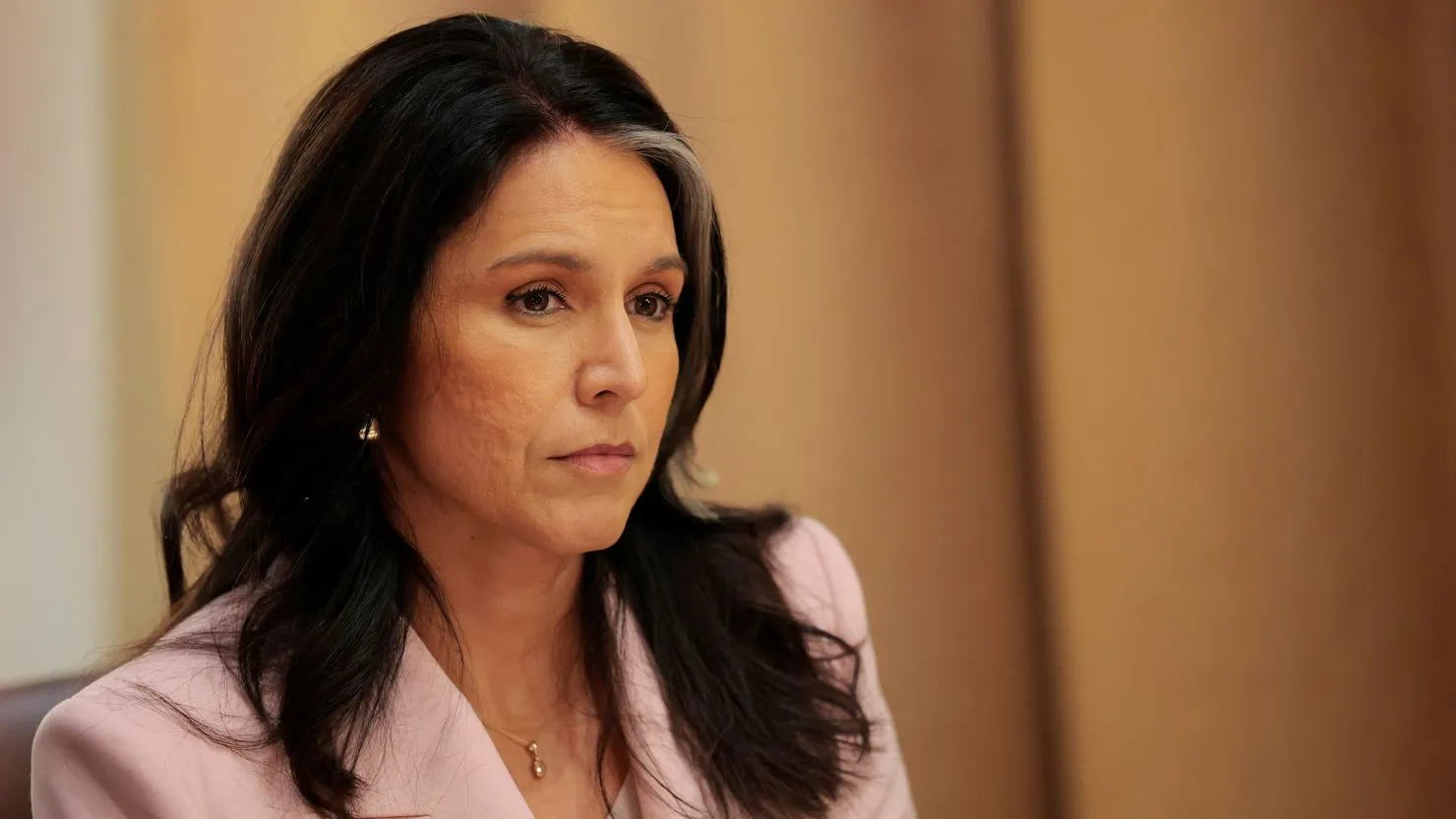Tulsi Gabbard Dismisses Senior Intelligence Officials in Bold Move Against ‘Deep State’
In a striking move that has sent reverberations through the political landscape, Rep. Tulsi Gabbard, a prominent figure in the U.S. Congress and a former presidential candidate, recently fired two senior officials from the National Intelligence Council (NIC). This action, which Gabbard describes as essential for rooting out the ‘politicization of intelligence,’ raises significant questions about the future of U.S. intelligence assessments and the ongoing battle against what she terms the ‘deep state.’
A Shift in the National Intelligence Landscape
The National Intelligence Council is charged with providing intelligence assessments to senior policymakers. By dismissing the heads of this critical organization, Gabbard aims to reshape how intelligence is perceived and utilized within the government. This bold action underscores her commitment to reforming the intelligence community, which she believes has become too enmeshed in political agendas.
According to sources, Gabbard’s decision specifically targets those who contributed to controversial assessments regarding international crises, including situations in Venezuela. Critics of these assessments have argued that they were influenced by political considerations rather than objective analysis.
Gabbard’s Concerns Over ‘Politicization’ of Intel
Gabbard has consistently voiced her concerns over what she sees as the politicization of intelligence. In her view, the primary role of the intelligence community is to provide unbiased information to leaders so they can make informed decisions regarding national security. Gabbard’s comments indicate her belief that when intelligence is manipulated for political gains, it endangers national interests and undermines the trust that the public places in these institutions.
“The American people deserve intelligence that is unclouded by political motivations,” Gabbard said during a recent press conference announcing the firings. “It is vital for our national security that intelligence officials are free from the constraints of political biases and agendas.” This statement not only reflects her commitment to transparency but also highlights a broader sentiment among certain political factions wary of the intelligence community’s reach.
Immediate Reactions and Political Ramifications
The immediate response to Gabbard’s decision has been mixed. Supporters laud it as a long-overdue intervention aimed at renewing accountability within the intelligence sector, while critics argue it is a dangerous precedent that could further politicize an already fragile area of governance.
“It’s essential to have integrity in our intelligence assessments,” stated a congressional ally of Gabbard. “If we are to make strategic decisions, we need objective information, not data that aligns with a certain political ideology.”
On the other hand, critics caution that Gabbard’s move could be interpreted as an attempt to weaken the checks and balances that are foundational to the intelligence community. As such, they contend that this could lead to alarmingly biased intelligence that undermines U.S. foreign policy and national security initiatives.
A Historical Context of Intelligence and Politics
The relationship between intelligence and politics is fraught with complexities. Lack of trust in intelligence assessments often leads to skepticism among the public and policymakers alike. Historical examples abound, including the controversial interpretations of intelligence surrounding the Iraq War, where misleading assessments were utilized as justifications for military action.
As Gabbard embarks on revamping the NIC, it is crucial to consider the balance between accountability and the potential for partisanship. Gabbard’s actions reflect a growing concern amongst various political groups regarding the integrity of intelligence, especially in light of historical precedents where intelligence has been wielded as a political weapon.
Impact on Broader Intelligence Community
Gabbard’s decision could reshape the culture within the broader intelligence community. By instating leaders who share her vision of transparency and objectivity, she might create a ripple effect throughout various agencies. The choice of new officials will be critical; Gabbard must ensure that they possess integrity and the willingness to resist political pressures.
This leadership shift could extend beyond the NIC, impacting how intelligence assessments are conducted and how the products of these assessments are delivered to elected officials. Gabbard’s actions come at a time when many Americans are increasingly concerned about national security measures and the government’s ability to provide them with accurate and actionable intelligence.
The Future of Intelligence Under Gabbard’s Leadership
Looking forward, the implications of Gabbard’s firings and subsequent appointments will be critical in determining the impact on U.S. foreign policy, particularly regarding sensitive geopolitical relations in regions like Venezuela, where the U.S. has significant interests.
“Our intelligence should serve the American people and our national interests rather than political games,” Gabbard remarked, emphasizing her vision for how intelligence should operate going forward. “I am committed to ensuring that we place America’s security first.”
Bridging the Gap Between Policy and Intelligence
This recent development underscores the need for a more integrated approach to intelligence and policymaking. With Gabbard at the helm of overseeing significant shifts in how intelligence is managed, it presents an opportunity to bridge the gap between intelligence professionals and policymakers. Through transparent methodologies and an emphasis on unbiased data, there is potential for shaping a more secure future.
Gabbard’s decisions will face the scrutiny of political adversaries who may capitalize on any misstep. However, if she successfully navigates this transformation in the intelligence community, it can pave the way for a more trustworthy intelligence framework, ultimately benefitting American national security in uncertain global terrains.
Conclusion: A Pivotal Moment for U.S. Intelligence
Tulsi Gabbard’s recent firings of top officials within the National Intelligence Council signal a pivotal moment for U.S. intelligence and the roles these assessments will play in shaping national policy. As the political climate becomes increasingly charged, the path forward requires a careful analysis of Gabbard’s intentions, choices for successors, and the overarching implications for the American public.
Whether Gabbard’s bold move will lead to a more transparent and effective intelligence community remains to be seen. However, one thing is clear: the intersection of politics and intelligence remains a contentious arena, necessitating vigilance from both leaders and citizens alike.






